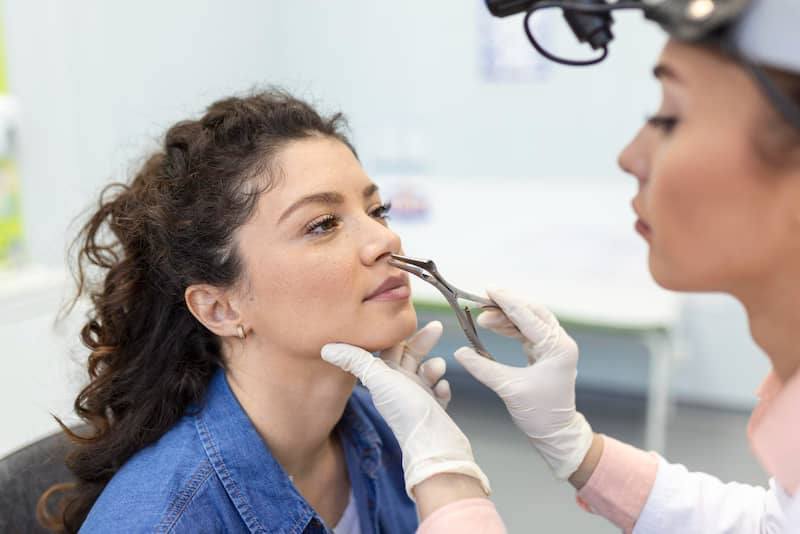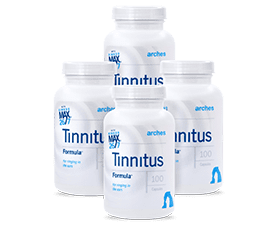By Barry Keate
Barry Keate, has lived with tinnitus over 40 years and has published 150+ research articles on numerous aspects of tinnitus. He is an expert on the condition and a well-known advocate for those with tinnitus.

(stefamerpik/Freepik)
Have you ever wondered why you get a ringing in your ears or why your tinnitus symptoms worsen when you have a cold or sinus infection? Tinnitus is a common symptom of sinusitis, inflamed or infected sinuses, but why?
First, you need to understand a little more about the ear’s anatomy.
Ear Anatomy
The eardrum is a thin membrane that divides your ear and ear canal into two regions called the inner and outer ear. Behind the eardrum is a chamber that empties into a tiny tube that travels to the back of your nose. This tube, known as the eustachian tube, is essential to normal ear function.
The eardrum is flexible and reacts to pressure. When you rise in an airplane, the pressure surrounding your body goes down, and the eardrum bulges outward because there is more pressure behind the eardrum. When you swallow or yawn and feel your ears pop, that is the eustachian tube opening and releasing the inner air pressure. This process equalizes the pressure on both sides of the eardrum.
Likewise, when you land, the pressure outside the eardrum increases, making the membrane bend inward. The eustachian tube opens again to let additional air into your inner ear and normalize the pressure.
The Eustachian tube also allows liquid that gets inside the ear to escape down the back of the nose. If the tube is blocked, the liquid gets trapped allowing bacteria to breed and giving you an ear infection. Your doctor can see the eardrum bulge outward with liquid that turns into a whitish-yellow pus when you have an inner ear infection. You can have localized pain or a clogged feeling. As pressure builds up, it affects your hearing. It can muffle sounds or give you a ringing in your ears.
Sinusitis
When your sinuses get inflamed from allergies, cold, flu, or a sinus infection, it can inflame the eustachian tube attached to the back of the nose. The tube is tiny. It doesn’t take much inflammation to affect its function, making it hard or even impossible for the tube to open to equalize pressure and let trapped liquid escape.
Doctors will treat the sinus infection, so the eustachian tube usually returns to normal function. If the tube can’t normalize, a surgeon can implant an ear tube, a tiny cylindrical channel that allows pus and other fluids to escape through the eardrum and out the ear canal.
Treating Sinusitis
Depending on the cause, there are several treatment options.
Saline Rinse: The first line of defense is cleansing the sinuses with saline. Several devices are on the market, but the function is the same. You pour or squeeze saline into one nostril, and it flushes mucus out the other side. This can clear mucus before it has time to become an infection, but there are some guidelines you’ll want to follow.
- Sterilize the device between uses. You don’t want bacteria to grow on the device and infect otherwise healthy sinuses. The device will give you instructions on how to sterilize it safely.
- Use distilled water. The distillation process eliminates bacteria and viruses. If you don’t have access to distilled water, you can sterilize water on the stove by boiling it for five minutes. Test a drop of water on your inner wrist to verify the temperature is comfortable before putting it in your sinuses.
- Use prepackaged salt packets that are clean and fine-grained, so they quickly dissolve in water at room temperature. If you don’t have access to the packets, sterilize table salt in the water as you boil it. There are recipes for saline solutions online that will give you proportions. Store in a sterilized container for use. (Not in the fridge. Even room-temperature saline can feel too cold in your nasal passages.) Don’t store it for longer than a week before making a new batch.
Steroid Spray: For people with allergies whose nasal passages can get inflamed for long periods, a prescription steroid spray can keep the tissues calm so it doesn’t develop into something more complicated.
Antibiotics: If the sinusitis does progress to a sinus infection, you may need antibiotics to heal.
Dealing With Tinnitus
If you have new or worsening tinnitus symptoms as a result of your illness, you can treat them directly. The inflammation and potential nerve damage caused by your illness should only be temporary unless you have more going on than just sinusitis. To help them recover, give them the nutrition they need to help protect your undamaged hair cells.
Products for tinnitus include Ginkgo biloba for ear ringing, as well as zinc and vitamin B12 for nerve regeneration and conductivity.
While sinusitis is annoying, especially when it results in tinnitus symptoms, you should see a full recovery with timely intervention. Give your ears a few days’ rest and the proper nutrition for tinnitus relief. If your symptoms don’t resolve with your illness, it may be time to speak with your doctor.
Get Free Shipping!
Order now and get free shipping on either the Tinnitus Starter Kit or Combo Pack. Try the doctor recommended products with clinically proven ingredients for tinnitus. No coupon code required.

